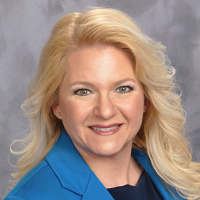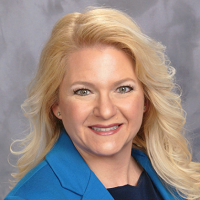I'm Single, With No Kids: Why Do I Need an Estate Plan?
Unless you have a plan in place, guess who might be making all the decisions about your prized possessions, or even your health care: a court.


Profit and prosper with the best of Kiplinger's advice on investing, taxes, retirement, personal finance and much more. Delivered daily. Enter your email in the box and click Sign Me Up.
You are now subscribed
Your newsletter sign-up was successful
Want to add more newsletters?

Delivered daily
Kiplinger Today
Profit and prosper with the best of Kiplinger's advice on investing, taxes, retirement, personal finance and much more delivered daily. Smart money moves start here.

Sent five days a week
Kiplinger A Step Ahead
Get practical help to make better financial decisions in your everyday life, from spending to savings on top deals.

Delivered daily
Kiplinger Closing Bell
Get today's biggest financial and investing headlines delivered to your inbox every day the U.S. stock market is open.

Sent twice a week
Kiplinger Adviser Intel
Financial pros across the country share best practices and fresh tactics to preserve and grow your wealth.

Delivered weekly
Kiplinger Tax Tips
Trim your federal and state tax bills with practical tax-planning and tax-cutting strategies.

Sent twice a week
Kiplinger Retirement Tips
Your twice-a-week guide to planning and enjoying a financially secure and richly rewarding retirement

Sent bimonthly.
Kiplinger Adviser Angle
Insights for advisers, wealth managers and other financial professionals.

Sent twice a week
Kiplinger Investing Weekly
Your twice-a-week roundup of promising stocks, funds, companies and industries you should consider, ones you should avoid, and why.

Sent weekly for six weeks
Kiplinger Invest for Retirement
Your step-by-step six-part series on how to invest for retirement, from devising a successful strategy to exactly which investments to choose.
A common misconception is that estate plans are only necessary for those with a high net worth or big families. If you’re a single adult with no children, you might feel like you don’t need an estate plan — but that’s not the case.
Planning your estate is about more than transferring assets. It’s about creating a comprehensive plan that clearly outlines your wishes when it comes to your finances, health care decisions and end-of-life matters.
Without one, you’re essentially giving up control over everything you own and putting it into the hands of the law.
From just $107.88 $24.99 for Kiplinger Personal Finance
Become a smarter, better informed investor. Subscribe from just $107.88 $24.99, plus get up to 4 Special Issues

Sign up for Kiplinger’s Free Newsletters
Profit and prosper with the best of expert advice on investing, taxes, retirement, personal finance and more - straight to your e-mail.
Profit and prosper with the best of expert advice - straight to your e-mail.
Without an estate plan, state laws will determine who gets your assets. Oftentimes this could be distant relatives you may not be close to or in contact with, or even the state itself.
Wills vs trusts
Wills and trusts allow you — not the state — to decide where your money, property and possessions go, but they operate in different ways.
Your will is a legal document that outlines how your assets should be distributed after death, names an executor to manage your estate, and can designate guardians for dependents or pets.
However, a will only goes into effect once you die, meaning it can’t help with the management of your assets should you become cognitively impaired.
Trusts, on the other hand, essentially avoid probate, making it easier to transfer your assets in a more private and efficient transfer. Trusts can also take effect while you’re alive and can continue after your death.
You can even set conditions like gradual distributions or age-based inheritances. Unlike wills, certain types of trusts, like a revocable living trust, allow a successor trustee to manage your assets if you become incapacitated.
Who will benefit, and who should be your executor
If you don’t have anyone in mind to leave your assets to or manage your estate, it’s not a requirement when drafting these documents.
In fact, you can leave your assets to a charity or nonprofit, a church or even establish a scholarship fund or foundation to help those in need.
You can hire a professional executor, such as a trust company or bank that offers estate management services, a lawyer who specializes in estate administration, a CPA or even a financial adviser.
If no executor is named or no one is willing to serve as your executor, a court-appointed public administrator will be put in charge. This can be impersonal and costly.
If you choose to name a professional executor, you can provide specific details of that in your will or trust and your estate can cover their fees.
Making your health wishes known
Aside from finances and property, you should make your health care and end-of-life wishes clear. Creating an advance directive for health care, also known as a living will, details your preferences for medical treatment.
This includes decisions about life support, resuscitation, organ donation and palliative care, which focuses on improving your quality of life.
Your advance directive for health care can also provide instructions about end-of-life care, making sure your health care team adheres to those instructions if no one is advocating for you.
Similar to hiring a professional executor, you can also appoint a professional health care proxy, also known as a medical power of attorney.
A private fiduciary, elder law attorney or a professional patient advocate can serve in this role. Depending on where you live, you may also have the option to appoint an organization, such as nonprofit guardianship program, to serve as your health care proxy.
Geriatric care managers and patient advocates can also be hired to communicate your wishes on your behalf.
If none of those options appeal to you, you can also use an ethical will or letter of instruction that explains your values, legacy, final wishes, additional details on medical treatment preferences and funeral arrangements.
Be sure to provide copies of your health care directive and medical POA to your health care team, and consider keeping a digital copy in an easily accessible place.
Don't give up control
No one enjoys making estate plans. They involve a lot of potentially hard conversations and decisions that can make it tempting to skip the whole process altogether. However, if you don’t have one, you’re giving up control of yourself and everything you’ve worked so hard for.
If you feel you don’t have anyone you trust to act on your behalf, don’t let that stop you from making an estate plan. There are many other options out there that allow you to communicate your wishes.
A financial professional or estate attorney can provide specific guidance tailored to your needs, allowing you to maintain control over your estate instead of giving that power to the law.
Cynthia Pruemm is an investment advisory representative of and provides advisory services through CoreCap Advisors, LLC. SIS Financial Group and CoreCap Advisors are separate and unaffiliated entities.
Related Content
- 10 Good Reasons to Revisit Your Will
- Estate Planning for Pets: How to Protect Your Furry Friends
- Wills Gone Wild: How to Avoid Estate Planning Disasters
- What Happens if You Die Without a Will?
- What Assets Should Not Be Placed in a Revocable Trust?
Profit and prosper with the best of Kiplinger's advice on investing, taxes, retirement, personal finance and much more. Delivered daily. Enter your email in the box and click Sign Me Up.

Cynthia Pruemm, Founder and CEO of SIS Financial Group, specializes in financial planning, asset protection and transitional planning. Prior to starting SIS Financial Group, Cynthia served as State Director for two of America’s largest senior market agencies, where she also served as a member of the Chairmen’s Council and met her husband, Hagen. Because of their shared desire to help people during the next chapter in their lives, they founded SIS Financial Group.
-
 Quiz: Do You Know How to Avoid the "Medigap Trap?"
Quiz: Do You Know How to Avoid the "Medigap Trap?"Quiz Test your basic knowledge of the "Medigap Trap" in our quick quiz.
-
 5 Top Tax-Efficient Mutual Funds for Smarter Investing
5 Top Tax-Efficient Mutual Funds for Smarter InvestingMutual funds are many things, but "tax-friendly" usually isn't one of them. These are the exceptions.
-
 AI Sparks Existential Crisis for Software Stocks
AI Sparks Existential Crisis for Software StocksThe Kiplinger Letter Fears that SaaS subscription software could be rendered obsolete by artificial intelligence make investors jittery.
-
 Quiz: Do You Know How to Avoid the 'Medigap Trap?'
Quiz: Do You Know How to Avoid the 'Medigap Trap?'Quiz Test your basic knowledge of the "Medigap Trap" in our quick quiz.
-
 5 Top Tax-Efficient Mutual Funds for Smarter Investing
5 Top Tax-Efficient Mutual Funds for Smarter InvestingMutual funds are many things, but "tax-friendly" usually isn't one of them. These are the exceptions.
-
 Why Invest In Mutual Funds When ETFs Exist?
Why Invest In Mutual Funds When ETFs Exist?Exchange-traded funds are cheaper, more tax-efficient and more flexible. But don't put mutual funds out to pasture quite yet.
-
 We Retired at 62 With $6.1 Million. My Wife Wants to Make Large Donations, but I Want to Travel and Buy a Lake House.
We Retired at 62 With $6.1 Million. My Wife Wants to Make Large Donations, but I Want to Travel and Buy a Lake House.We are 62 and finally retired after decades of hard work. I see the lakehouse as an investment in our happiness.
-
 Social Security Break-Even Math Is Helpful, But Don't Let It Dictate When You'll File
Social Security Break-Even Math Is Helpful, But Don't Let It Dictate When You'll FileYour Social Security break-even age tells you how long you'd need to live for delaying to pay off, but shouldn't be the sole basis for deciding when to claim.
-
 I'm an Opportunity Zone Pro: This Is How to Deliver Roth-Like Tax-Free Growth (Without Contribution Limits)
I'm an Opportunity Zone Pro: This Is How to Deliver Roth-Like Tax-Free Growth (Without Contribution Limits)Investors who combine Roth IRAs, the gold standard of tax-free savings, with qualified opportunity funds could enjoy decades of tax-free growth.
-
 One of the Most Powerful Wealth-Building Moves a Woman Can Make: A Midcareer Pivot
One of the Most Powerful Wealth-Building Moves a Woman Can Make: A Midcareer PivotIf it feels like you can't sustain what you're doing for the next 20 years, it's time for an honest look at what's draining you and what energizes you.
-
 Stocks Make More Big Up and Down Moves: Stock Market Today
Stocks Make More Big Up and Down Moves: Stock Market TodayThe impact of revolutionary technology has replaced world-changing trade policy as the major variable for markets, with mixed results for sectors and stocks.